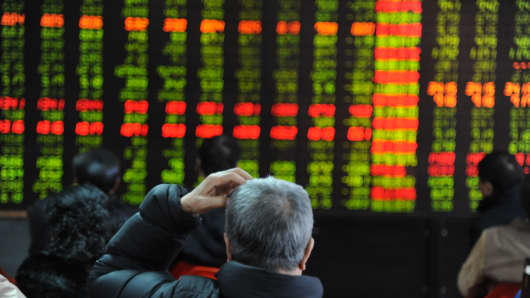Encouraged by China's steady economic growth, signs of improving U.S. labor markets and easy monetary policies by the world's major central banks, global investors have been changing their erstwhile defensive posture in Asia-Pacific. Since the beginning of the year, the regional stock index has nearly caught up with American and euro area equity markets.
Barring major security upheavals in East Asia, it is possible that its relatively attractive equity market valuations will continue to bring capital from apparently expensive and fully valued markets in the U.S. and in the euro area.
The extent to which that might happen depends on East Asian economic activity, the pace of monetary "normalization" in the U.S. and in the euro area, and – most importantly – on peace and unimpeded commerce in that fast-growing segment of the world economy.
Business stars are auspiciously aligned
Borrowing from East Asian religious cosmology, the term auspicious seems to be particularly fitting when trying to capture the region's economic outlook.
Read MoreChina plots its own Asia 'pivot'
China continues to show that it's successfully managing the challenges of steady economic growth in the context of wide-ranging structural reforms and difficult socio-economic changes. The growing share of household consumption, investments and services in its aggregate demand is a natural consequence of this epochal transformation process.
The booming China trade will undoubtedly remain the key ingredient of economic growth in East Asia – and well beyond.
East Asian exporters will also continue to benefit from a relatively liberal access to the expanding U.S. economy. In the first five months of this year, they sold $161.5 billion worth of goods and services on American markets, a 5.4 percent increase from the year earlier. Over the same period, the U.S. trade deficit with that region accounted for more than half of America's total trade gap.
Read MoreBacklash stirs in US against foreign worker visas
The much-feared precipitation to "normalize" the monetary policies in the U.S. and in the euro area proved to have been a false alarm, triggered by markets' betting instincts and an improper reading of American and European monetary policies.
East Asians can, therefore, rest easy and enjoy – for the time being -- the enormous liquidity fueling their asset markets. Prudent investors, however, will wish to plan for the day when the present monetary tsunami begins to recede. But that is a topic for another day.
For very different reasons, Japan and Indonesia are also interesting stories to watch.
Read MoreIs a less pacifist-Japan on collision with China?
Last May, the inflation rate in Japan reached a 32-year high of 3.4 percent – a world of difference compared with a deflation of -0.3 percent in May 2013. The ensuing huge erosion of households' real incomes and higher sales taxes will inevitably depress the growth of consumer spending and business capital outlays, which, taken together, represent 74.5 percent of the economy. No wonder that the last week's quarterly economic survey showed Japan's business sentiment in a steady decline for the past six quarters.
Indonesia is a hopeful work-in-progress. Its next leader, the popular Jakarta Mayor, Mr. Widodo, is expected to win big next Wednesday. If that happens, he will clearly have a strong mandate to reform and modernize this sprawling archipelago (13,466 islands) of 247 million people. Markets have already voted favorably on that election outcome and on Mr. Widodo's political platform.
China, Koreas and Japan
Most Asian observers seem to believe that this auspicious alignment of the region's business stars won't be disrupted by clashing and sinking boats, daily close encounters of hostile fighter jets and naval assets in the East China Sea, ballistic missiles fired into the Sea of Japan (aka East Sea), and a de-facto landmark change of Japan's pacific constitution.
Read MoreFund managers set their sights on unloved Japan
In the face of all that, they still appear to think that the proverbial peace and harmony will prevail. Let's hope they are right.
Much of that auspiciousness was on display during the last week's visit to South Korea by China's President Xi Jinping. He received an exceptionally warm welcome in a country where almost two-thirds of the people view China as a cooperative partner unlikely to take North Korea's side in case of another inter-Korean conflict.





